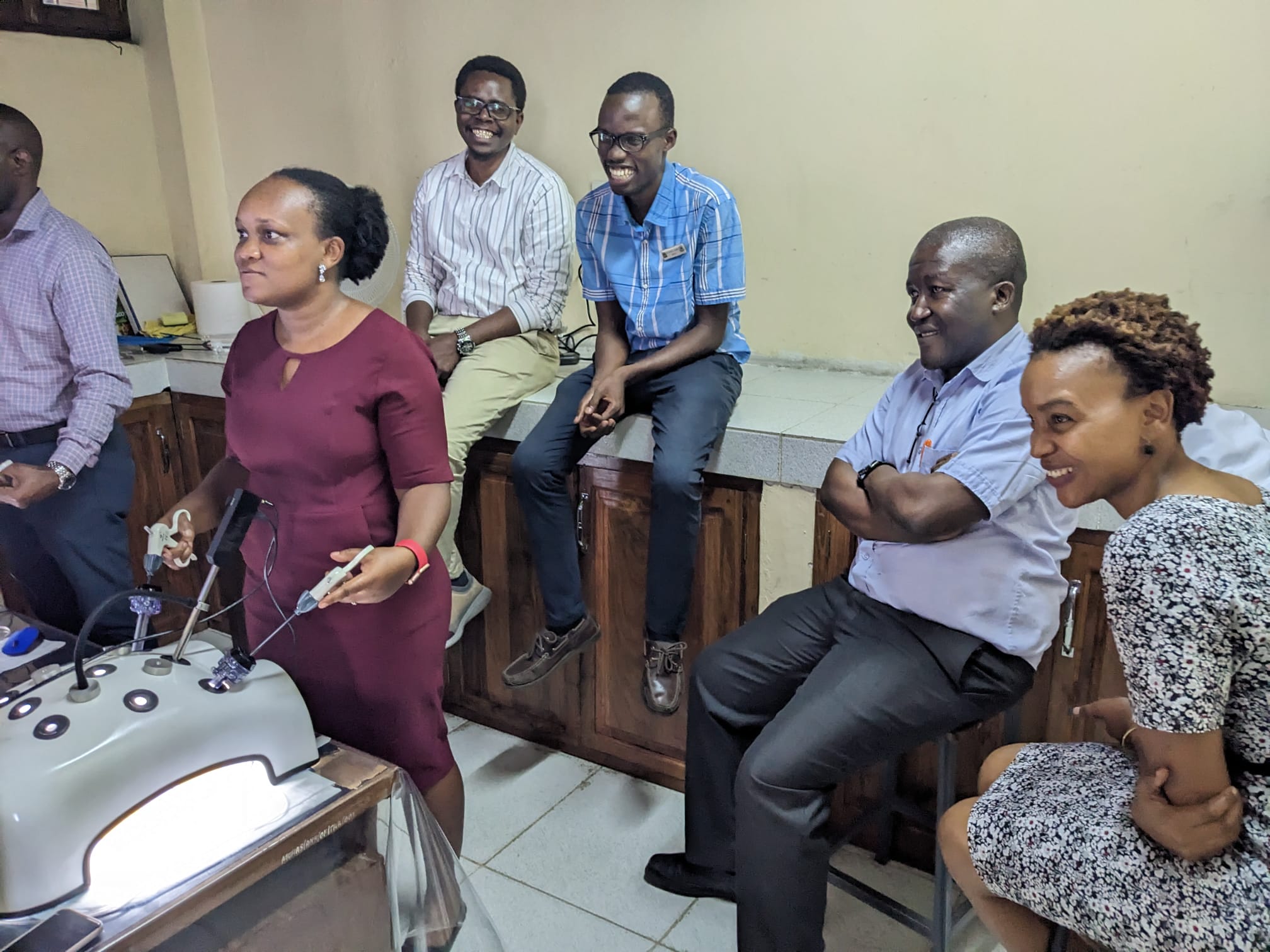
The work that surgical resident Nathan Brand, MD, MS, UCSF, did for his GloCal Health Fellowship from July 2022 to June 2023 may on the surface appear on the dry side: a matter of methodically sifting through spreadsheets as opposed to the delicate artistry of surgery. But the data that he and his team collected, cleaned, and analyzed for their project “Assessment of Current Surgical Oncology Case Volume, Capacity, and Priorities in Tanzania,” has the potential to significantly transform Tanzanian oncology. Put together by Dr. Brand and his mentors Dr. Larry Akoko, MUHAS; Dr. Cameron Gaskill, UCD; and Dr. Doruk Ozgediz, UCSF, the project aims to provide bedrock knowledge of the “how much, where, and why” of cancer surgery in Tanzania to support future healthcare policy decisions in areas such as resource allocation and training.
Gathering the Data
Dr. Brand developed an early interest in both global health and medicine, partly due to early exposure from his pediatrician father. This interest led him to seek out opportunities to work abroad while pursuing medicine. Prior to his GloCal fellowship, Brand spent time in Malawi, Uganda, and Kenya. It was while in the latter, working on behalf of the U.S. National Cancer Institute that he met Dr. Larry Akoko, Tanzania’s first fellowship trained surgical oncologist, who “just struck me as an incredible person.” When Dr. Brand entered residency, he knew he wanted to continue to collaborate with Dr. Akoko. The first study they worked on was about laparotomy outcomes in Tanzania. They brainstormed a number of possibilities for the GloCal fellowship, and Dr. Akoko, who also is the president of the Tanzanian Surgical Association, came up with the winning idea of a broad assessment of surgical oncology in the nation.
First, they built a consortium consisting of ten Tanzanian hospitals, each selected based on its business with cancer surgery. Dr. Akoko, due to his position, had many contacts which made the process of forging this broad coalition feasible. His “knowledge and understanding of how things work in Tanzania and what needs to be done” played a pivotal role in the success of the project. Additionally, prior to the project’s start, Dr. Brand had received funding to host a four-day colorectal cancer conference in Tanzania, which allowed him to meet many stakeholders in person before research began. Leveraging these existing relationships created a community-based approach which allowed everyone “to see the long-term dedication that we had to improving cancer care in the country. Creating the consortium didn't feel like some outsider coming in asking for their data and trying to run away to write a paper. Rather, it was a team effort from the very beginning.”
For a project of this scope, obtaining reliable data can be a challenge. “It's very hard to get a lot of data from a lot of people,” Dr. Brand notes. The team took inspiration from a project Dr. Gaskill had done in Ghana that used operative logbooks as data sources. These operative logbooks are filled out before a patient is taken into the operating room, and studies have shown them to be highly accurate summaries of the surgeries.
Once the data source was identified and approval was received by several institutional review boards; it was time to collect it. Dr. Brand himself went to nine of the ten hospitals in person and “was able to organize data abstraction remotely” from the tenth. On site, he would work with the principal investigator of the respective hospital and ended up with a 100% success rate for obtaining data from 2022 putting it squarely post the height of the COVID-19 pandemic era.
One challenge Dr. Brand and his team encountered was navigating the complexities of different hospitals using different systems for data abstraction, such as paper charts and EMRs (electronic medical records), which complicated data abstraction. “We would need to tailor our data extraction strategy a little bit for each hospital so that we were able to be successful,” Dr. Brand reflects.
Lessons and Pathways
The data has now been analyzed and submitted for publication in academic journals. It will ultimately be used to help the Tanzanian government prioritize investment for more and better cancer surgery. For example, the government might see where areas of expertise are being developed, which might lead to certain hospitals getting designated as “centers of excellence” for particular surgeries and becoming sites to train for that surgery.
There’s still much to do to improve cancer care in Tanzania and Dr. Brand recalls the sobering experience of seeing several patients whose disease had progressed to an extent it would not have had they received the earlier treatment that is standard in the West. But he also found multiple paths to positive impact, even beyond his GloCal fellowship project. While in Tanzania, Dr. Brand also worked on two surgical education projects. The first project trained general surgeons and urologists to perform arteriovenous fistulas, a procedure that provides safe long-term hemodialysis access to patients with end stage renal disease requiring dialysis. The second project was the creation of a laparoscopic surgery simulation lab. “Both of these projects have shown me the opportunity for capacity building in surgical education and the effects that can have on strengthening the workforce and strengthening the surgical system in general.”

Dr. Brand credits his mentor, Dr. Ozgediz, for demonstrating through his own work in Uganda the potential of focusing “efforts in a single geographic location and really invest[ing] in relationships and supporting local people and listening to local stakeholders that inevitably know so much more about what's needed and what needs to be done than you do.” This theme of community-based partnership echoed throughout Dr. Brand’s GloCal Fellowship project. As the work concludes, its legacy lies not only in data but also in its commitment to collaboration and local expertise.
